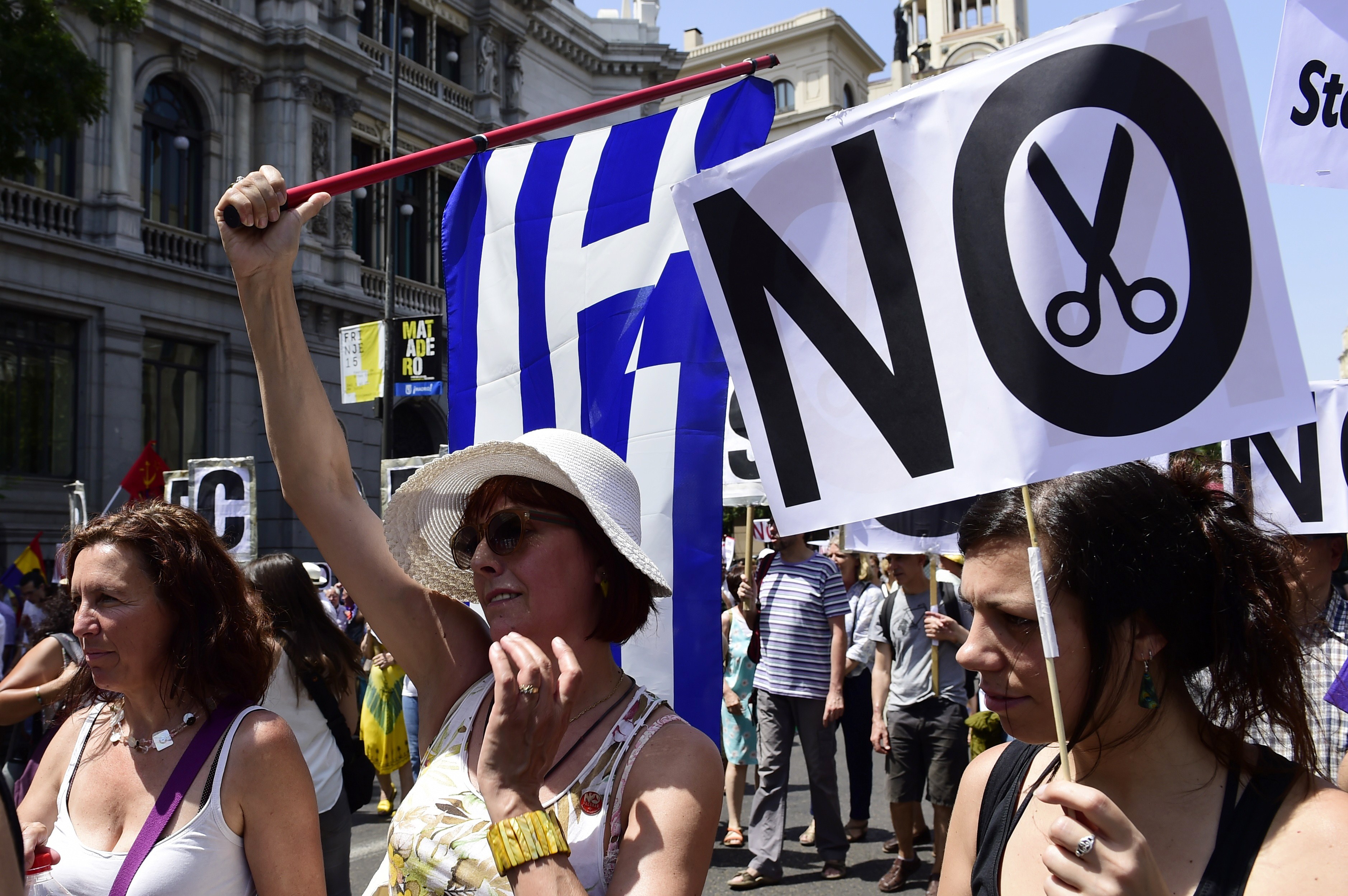European elites are already plotting Greece's comeuppance. They're in for a big surprise.
A Grexit might might just open the rest of Europe's eyes


A free daily email with the biggest news stories of the day – and the best features from TheWeek.com
You are now subscribed
Your newsletter sign-up was successful
In a national referendum on Sunday, the Greek people bravely voted to give the middle finger to the eurozone. It was the right thing to do.
Now the question is: What happens next?
The bookie's answer is the Grexit — Greece getting booted out of the euro.
The Week
Escape your echo chamber. Get the facts behind the news, plus analysis from multiple perspectives.

Sign up for The Week's Free Newsletters
From our morning news briefing to a weekly Good News Newsletter, get the best of The Week delivered directly to your inbox.
From our morning news briefing to a weekly Good News Newsletter, get the best of The Week delivered directly to your inbox.
That could happen quickly. Greece's banks were only surviving because they are getting a lifeline of financing from the European Central Bank. During the referendum campaign, the ECB cut off the financing, triggering a banking crisis which was only slowed by the Greek government's decision to implement capital controls. It still hasn't turned financing back on.
What's more, the Greek government is quickly running out of money. If and when it does, it will have to start paying its bills with IOUs — which will become a de facto new currency, traded against whatever euros are left in the country.
If the eurozone wants to kick Greece out of the euro, they can. And now that they've isolated banks from holding Greek debt, they believe that if they kick Greece out of the euro, they won't have a contagion to the rest of the eurozone, which was the main reason why they were reluctant to do so until now. They might do it just out of anger.
It would be a severe miscalculation.
A free daily email with the biggest news stories of the day – and the best features from TheWeek.com
The first thing is that contagion is a very real possibility. The problem isn't how much Greek debt the banks hold. The problem is that any currency system is based on confidence. It's possible to have a currency run as well as debt runs and bank runs. With Greece out, all eyes will necessarily be on the next weakest link. People there will start moving their money out of the country's banks, triggering a banking crisis. The economy will collapse, meaning the country will have a hard time paying its debts. The eurozone will insist it must, whatever the cost. Austerity. Mass protests. And here we go again.
Longer term, the eurocrats believe that a Grexit will cause Greece to collapse — some eurocrats were even talking about extending "humanitarian assistance" if the country leaves — and that this might be a good thing after all, since it would push everyone else to toe the line. Many Germans want to crush Greece pour encourager les autres. On top of being highly questionable morally, it is, to put it mildly, not sensible.
Greece is stuck in a one-size-fits-all currency union, and that is a major drag on the economy. It's true that Greece would be in chaos while the new currency is introduced. But over time, the new, lower currency would boost exports and competitiveness dramatically, especially for a country with such an important tourism sector. With the Greek government running a primary surplus (meaning it can fund itself from tax revenue, minus its debt), it can default on its euro-denominated debt without too much trouble, and that will be a breath of fresh air.
Three to five years from now, with Greece at 7 percent unemployment down from over 25 percent today, a lot of people in Spain, Portugal, and Italy will be looking longingly their way. And now the eurocrats won't have the argument that leaving the euro means automatic doom.
But I honestly think Grexit isn't very likely. I suspect Germans are still more scared than they are angry, and the eurocrat urge has always been to kick the can down the road. Given its election pledge and the political dynamics, Syriza will not take Greece out of the euro on its own initiative. Everyone can go back to posturing and throwing bombs in the press for a while before hammering out a new deal, one that restructures Greece's debt and gives it more leeway on austerity, in exchange for other concessions, especially on structural reform. That would also be a better outcome than the situation before the referendum; at least everyone gets to save a little face.
Now, please excuse me. Being based in the eurozone, I need to find a bank in Switzerland or Britain to park my savings, and quickly...
Pascal-Emmanuel Gobry is a writer and fellow at the Ethics and Public Policy Center. His writing has appeared at Forbes, The Atlantic, First Things, Commentary Magazine, The Daily Beast, The Federalist, Quartz, and other places. He lives in Paris with his beloved wife and daughter.
-
 Film reviews: ‘Send Help’ and ‘Private Life’
Film reviews: ‘Send Help’ and ‘Private Life’Feature An office doormat is stranded alone with her awful boss and a frazzled therapist turns amateur murder investigator
-
 Movies to watch in February
Movies to watch in Februarythe week recommends Time travelers, multiverse hoppers and an Iraqi parable highlight this month’s offerings during the depths of winter
-
 ICE’s facial scanning is the tip of the surveillance iceberg
ICE’s facial scanning is the tip of the surveillance icebergIN THE SPOTLIGHT Federal troops are increasingly turning to high-tech tracking tools that push the boundaries of personal privacy
